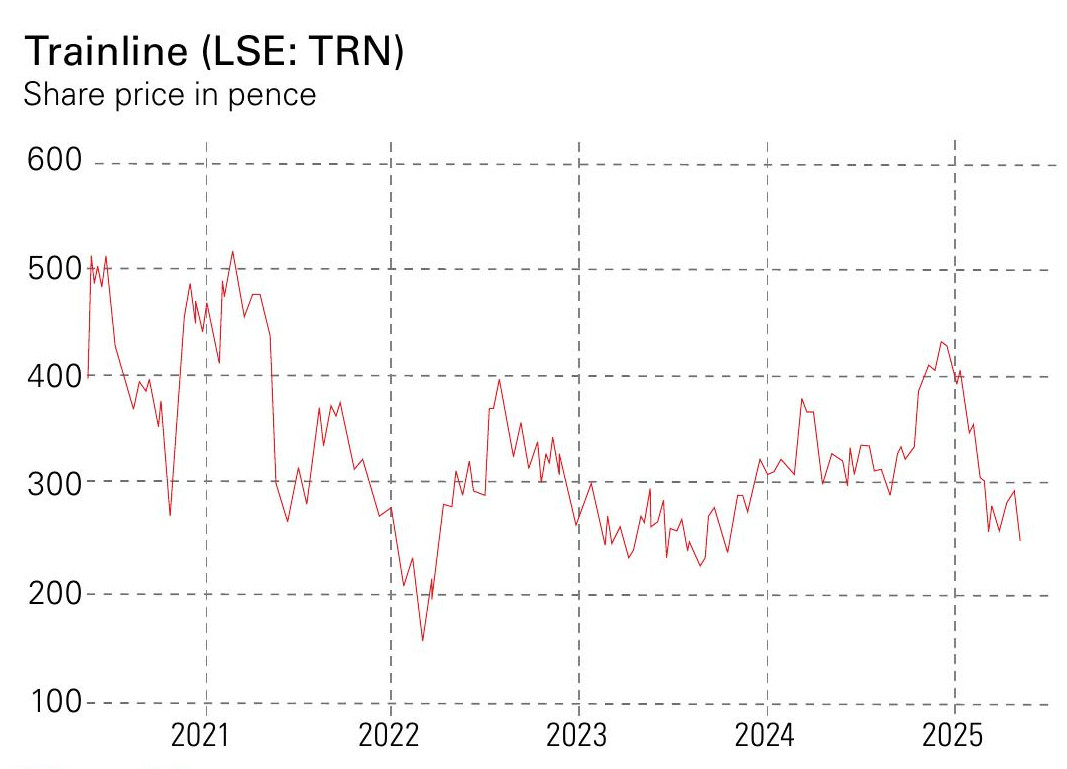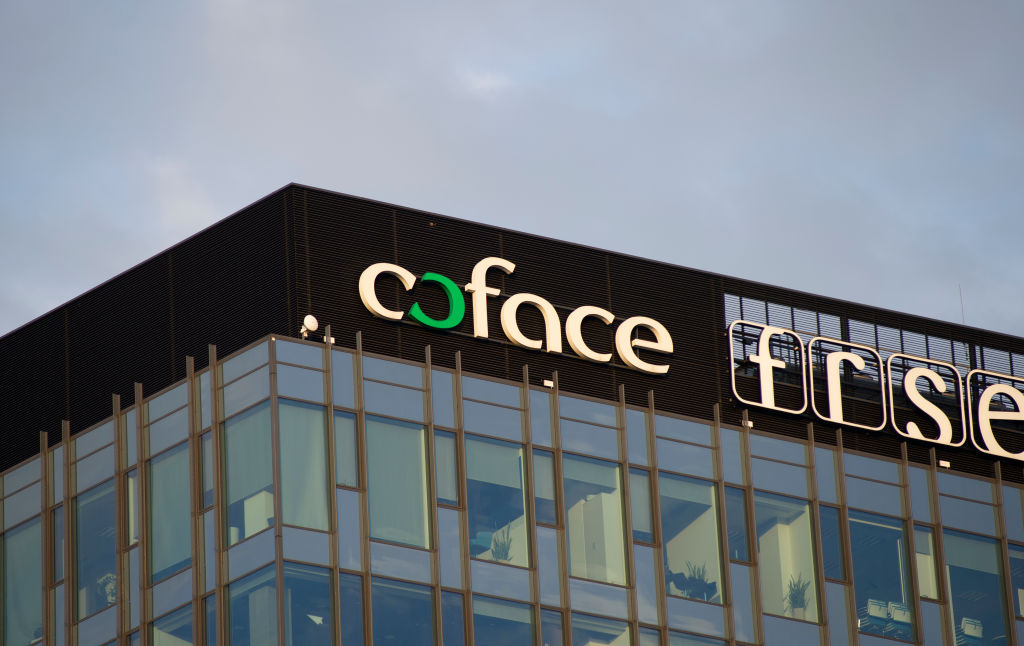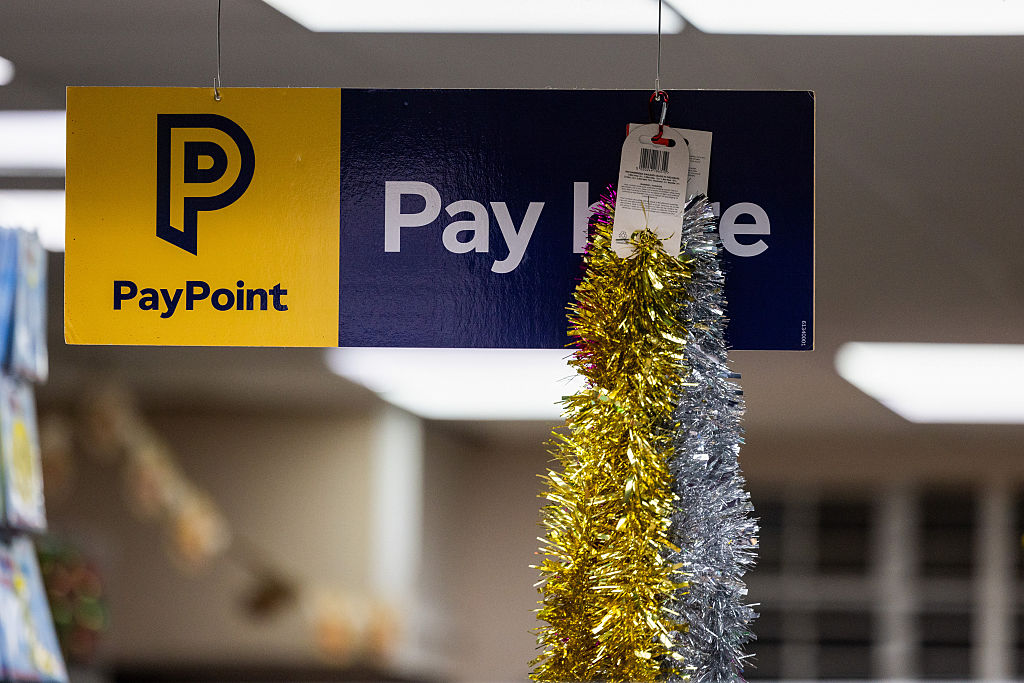Trainline: a cheap cash machine for investors
Trainline’s shares have slumped owing to concerns about growth, but the sell-off seems overdone


Get the latest financial news, insights and expert analysis from our award-winning MoneyWeek team, to help you understand what really matters when it comes to your finances.
You are now subscribed
Your newsletter sign-up was successful
Want to add more newsletters?

Twice daily
MoneyWeek
Get the latest financial news, insights and expert analysis from our award-winning MoneyWeek team, to help you understand what really matters when it comes to your finances.

Four times a week
Look After My Bills
Sign up to our free money-saving newsletter, filled with the latest news and expert advice to help you find the best tips and deals for managing your bills. Start saving today!
When Trainline (LSE: TRN) published its full-year results on 7 May, the market’s reaction was visceral. The shares plunged nearly 10% on the day, taking losses over the past year to 25%. The performance year-to-date is far worse. Since the shares hit a multi-year high of 415p in December, the stock has plunged by more than 40%. Investors, it seems, are really worried about two things.
Firstly, international growth, which has flatlined over the past year, and a potential government competitor in the firm’s largest market, the UK.
Worries about Trainline's growth
Last year, the group generated revenue of £442 million. Of that, £208 million came from its home market in the UK. Revenue from the international consumer was £53 million, and income from the Trainline Solutions tech arm totalled £181 million. Revenue across all segments rose 12% year-on-year on a constant currency basis. Revenue data only provides half the picture, as although Trainline is best known for providing rail tickets, it’s increasingly expanding into other areas, such as insurance and hotel bookings.
MoneyWeek
Subscribe to MoneyWeek today and get your first six magazine issues absolutely FREE

Sign up to Money Morning
Don't miss the latest investment and personal finances news, market analysis, plus money-saving tips with our free twice-daily newsletter
Don't miss the latest investment and personal finances news, market analysis, plus money-saving tips with our free twice-daily newsletter
Net ticket sales rose by 12% to £5.9 billion, with sales up 13% in the UK, 4% in constant currency terms on an international basis (around 17% of total group ticket sales) and 20% via Trainline Solutions (around 15%).
In the UK market, Trainline said: “Increasing non-commission revenues, including insurance and hotel bookings, helped largely offset the dilutive effect of proportionally faster growth in shorter-distance travel (commuter and on-the-day bookings), which generates relatively lower rates of revenue than longer-distance travel”.
Trainline earns money by taking a commission on each ticket sale. It does not disclose how much it earns, but we can get some idea from its adjusted earnings before interest, tax, depreciation and amortisation (Ebitda), which stands at 2.69% of adjusted ticket sales. That suggests a take of 2.69% per ticket, although in reality the figure is likely to be significantly lower. This margin includes other higher-margin activities, such as the sale of insurance and software licensing revenue via Trainline Solutions.
This is the most interesting part of the business. The firm has developed and sells its own software, which helps other pieces of software talk to each other and allows companies to organise rail travel across Europe via in-house platforms. For more than two decades, Trainline’s booking tools have been helping companies navigate the complex European rail market, especially between the UK and Europe. International rail-ticket sales via this software rose 63% last year, and the company generated Ebitda of £91 million last year on revenue of £181 million, a take rate of around 50%. About a third of the UK’s rail operators use the software to manage their booking systems.
Last year’s figures showed a company in rude health, growing at a double-digit rate in a relatively unique area without many competitors. So why have investors been rushing for the exit over the past five months?
Government muscles in
Growth is the company’s first issue. As Karl Burns, analyst at Canaccord Genuity, noted in the days after the results were published, “We believe Trainline’s shares got hit on the day due to the weak revenue guidance of +0%-3% which was below consensus”. There were two reasons for this gloomy outlook. Trainline said it expects a lower commission rate in future, which will cost around £18 million; and the government’s “Project Oval” could hit the firm’s top line by about £6 million, or 1.5% of revenue.
Project Oval is being funded by the Department for Transport (DfT) and will see London-style contactless train ticketing expanded to around 100 stations across the southeast of England over the year.
Around half have already been activated. These tap-in, tap-out ticketing systems are designed to offer customers the best deal and remove the need to buy tickets in advance, beating Trainline at its own game. The revenue hit from this isn’t much, but it speaks to wider concerns about creeping nationalisation.
The company isn’t standing still. It’s bidding via Trainline Solutions to participate in digital pay-as-you-go trials launching later this year in Yorkshire and the East Midlands. If successful, this could open up a whole new market for the business.
The other threat facing Trainline is the upcoming launch of Great British Railways (GBR). The government has confirmed that, once established, this body will seek ways to replace train-operators’ retail websites with a single public-sector retail site and app, a significant threat to Trainline’s position in its largest market.
The outcome of the public consultation on GBR is set to be published later this year, and that’s when we’ll learn how the government chooses to proceed.

Priced to fail
With this risk hanging over the firm, the shares are now “priced to fail”, according to Canaccord Genuity, but multiple analysts believe this is too harsh a judgment.
“We believe a significant proportion of the bad news is now behind the company and the valuation provides an excellent risk/reward dynamic,” notes Canaccord. Shore Capital thinks the firm is well-positioned to grow in both Europe and the UK. Panmure Liberum says this “cash-generative machine still feels extremely undervalued”, trading at a forward price-to-earnings ratio (p/e) of just 12. Management also seems to agree. The company launched a new £75 million share buyback in March, and has spent £154 million buying back shares since September 2023 – 14% of its current £1.08 billion market capitalisation.
This article was first published in MoneyWeek's magazine. Enjoy exclusive early access to news, opinion and analysis from our team of financial experts with a MoneyWeek subscription.
Get the latest financial news, insights and expert analysis from our award-winning MoneyWeek team, to help you understand what really matters when it comes to your finances.

Rupert is the former deputy digital editor of MoneyWeek. He's an active investor and has always been fascinated by the world of business and investing. His style has been heavily influenced by US investors Warren Buffett and Philip Carret. He is always looking for high-quality growth opportunities trading at a reasonable price, preferring cash generative businesses with strong balance sheets over blue-sky growth stocks.
Rupert has written for many UK and international publications including the Motley Fool, Gurufocus and ValueWalk, aimed at a range of readers; from the first timers to experienced high-net-worth individuals. Rupert has also founded and managed several businesses, including the New York-based hedge fund newsletter, Hidden Value Stocks. He has written over 20 ebooks and appeared as an expert commentator on the BBC World Service.
-
 How a ‘great view’ from your home can boost its value by 35%
How a ‘great view’ from your home can boost its value by 35%A house that comes with a picturesque backdrop could add tens of thousands of pounds to its asking price – but how does each region compare?
-
 What is a care fees annuity and how much does it cost?
What is a care fees annuity and how much does it cost?How we will be cared for in our later years – and how much we are willing to pay for it – are conversations best had as early as possible. One option to cover the cost is a care fees annuity. We look at the pros and cons.
-
 Three key winners from the AI boom and beyond
Three key winners from the AI boom and beyondJames Harries of the Trojan Global Income Fund picks three promising stocks that transcend the hype of the AI boom
-
 Three companies with deep economic moats to buy now
Three companies with deep economic moats to buy nowOpinion An economic moat can underpin a company's future returns. Here, Imran Sattar, portfolio manager at Edinburgh Investment Trust, selects three stocks to buy now
-
 Beeks – building the infrastructure behind global markets
Beeks – building the infrastructure behind global marketsBeeks Financial Cloud has carved out a lucrative global niche in financial plumbing with smart strategies, says Jamie Ward
-
 Three promising emerging-market stocks to diversify your portfolio
Three promising emerging-market stocks to diversify your portfolioOpinion Omar Negyal, portfolio manager, JPMorgan Global Emerging Markets Income Trust, highlights three emerging-market stocks where he’d put his money
-
 Coface offers excess profit in an unloved sector
Coface offers excess profit in an unloved sectorCoface is a world leader in trade-credit insurance with key competitive advantages in a niche market
-
 Profit from pest control with Rentokil Initial
Profit from pest control with Rentokil InitialRentokil Initial is set for global expansion and offers strong sales growth
-
 Three funds to buy for capital growth and global income
Three funds to buy for capital growth and global incomeOpinion Three investment trusts with potential for capital growth, selected by Adam Norris, co-portfolio manager of the CT Global Managed Portfolio Trust
-
 PayPoint: a promising stock for income-seekers
PayPoint: a promising stock for income-seekersPayPoint, a household name across Britain, is moving away from its traditional roots toward a digital future. Investors after a steady income should buy in